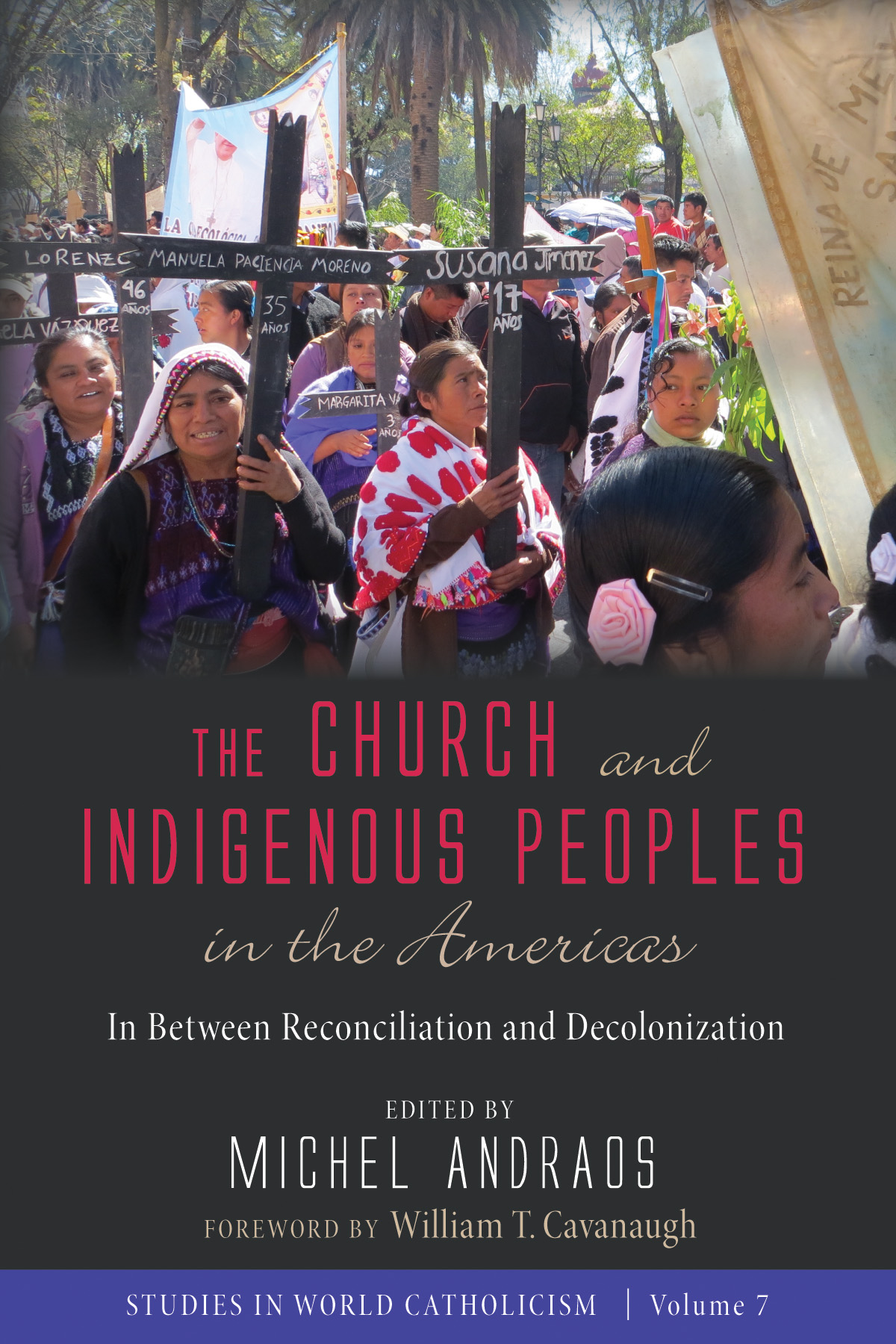2019
247 pages
ISBN 9781532631115
Edited by Michel Andraos
Foreword by William T. Cavanaugh
Description
Indigenous and non-Indigenous voices come together in this volume to discuss both the wounds of colonial history and the opportunities for decolonization, reconciliation, and hope in the relationship between the church and Indigenous peoples across the Americas. Scholars and pastoral leaders from Chile, Bolivia, Brazil, Mexico, the United States, and Canada, and Indigenous peoples of Mapuche, Chiquitano, Tzeltal Maya, Oglala Sioux, Mi’kmaw, and Anishinaabe-Ojibwe reflect on the possibility of constructing decolonial theology and pastoral praxis, and on the urgent need for transformation of church structures and old theology. The book opens new horizons for different ways of thinking and acting, and for the emergence of a truly intercultural theology.
Reviews
“This fascinating book shows how intercultural politics and intercultural faith are being understood throughout the Americas. It brings together critical social thinking, narratives due to experience and daily struggle, and spiritual and theological insights. . . . It is a polyphonic volume that makes each reader grow with questions and convictions. It has a clear focus: within societies and churches, transformation happens ‘from below,’ and it includes prophetic paths in solidarity with indigenous communities.”
Diego Irarrazaval, Director (1981–2004) of the Aymara Institute in Peru
“This book charts a new path for understanding the legacy of Western European and Anglo North Atlantic colonialism. Diverse Indigenous and non-Indigenous scholars throughout the Americas reflect on how colonial projects have meant the destruction of Indigenous communities, peoples, cultures, and religious traditions, with Christianity playing a central role in their colonization. However, new networks of resistance and solidarity are emerging, reminding us that dialogue with Indigenous communities is essential to decolonize the Christian tradition.”
Néstor Medina, Toronto School of Theology
“Hope-filled intercultural dialogue at its best! A solid foothold for the long and arduous climb into right relations! Essential reading for understanding and addressing the Christian call to be the liberating and transforming presence of Christ in this, our earth home. Expressing a new graced moment, it reveals the transcultural nature of the Good News of Jesus Christ and gives a taste of the voice and face of Christ in the Indigenous peoples of the Americas creating a hunger for more.”
Priscilla Solomon, CSJ, Anishinaabe, Member of Henvey Inlet FN, Faith and Justice Coordinator of The Sisters of St. Joseph of Sault Ste. Marie, ON, Canada
